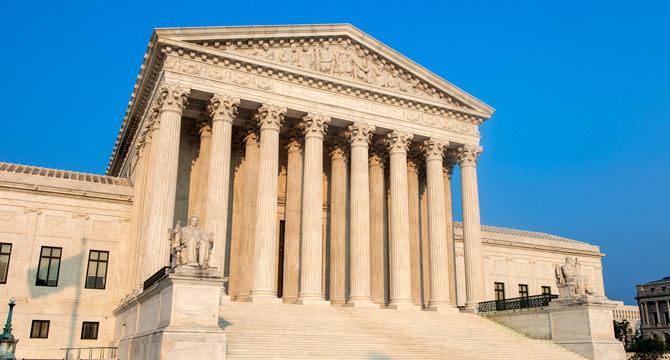
Health care providers are under constant threat of lawsuits brought by whistleblowers under the federal civil False Claims Act, 31 U.S.C. §§ 3729, et seq. (FCA), the statute under which the government obtains most judgements against providers. These qui tam lawsuits can be costly even where they lack any merit, and counsel for providers are always on the lookout for defenses that can end these expensive lawsuits sooner rather than later. One of these defenses, the “first to file bar,” retains the ability to eliminate copycat lawsuits.
The Supreme Court recently declined to review the dismissal of a relator’s claim by the Tenth Circuit FCA where dismissal was based on a novel application of the first to file bar. United States ex rel. Little, et al. v. Triumph Gear Systems, Inc., No. 17-1027 (United States Supreme Court). The declination let stand a ruling that: (1) amending a complaint can constitute “intervention” for purposes of the first to file bar; and (2) under most circumstances, “John Doe” or other anonymous plaintiffs cannot be considered “original parties” for purposes of the first to file bar, and that their filing of an amended complaint mandated their treatment as “new” relators who could not file an action based on the same theory as the true “original” relator. This application of the first to file bar to a novel set of circumstances demonstrates the potency of that theory in addressing copycat whistleblower claims brought against health care providers and others under the FCA.
Avoiding Duplicative Qui Tam Actions
The FCA’s first to file bar states that “[w]hen a person brings an action under the [FCA], no person other than the Government may intervene or bring a related action based on facts underlying the pending action.” 31 U.S.C. § 3730(b)(5). The first to file bar is designed to avoid needlessly duplicative qui tam actions based upon the same essential facts when the government has already obtained information regarding the alleged fraud based upon a previously filed qui tam action.
In United States ex rel. Little v. Triumph Gear Systems, Inc., No. 16-4152 (10th Cir., September 18, 2017), the Tenth Circuit was faced with a novel set of facts. A qui tam relator filed a claim against Triumph Gear Systems claiming that it fraudulently billed the government. The complaint also named three “John Doe,” or anonymous relators. An amended complaint was filed months later by two new qui tam relators who claimed to be two of the “John Doe” relators, while the “original” relator was taken off of the complaint. When the government did not intervene and the case was unsealed, Triumph moved to dismiss the complaint as violative of the first to file bar. The District Court would not dismiss, finding that the amendment of the complaint did not constitute “intervention” for purposes of the first to file bar.
The Tenth Circuit reversed the District Court’s holding. The appellate court found that the filing of an amended complaint could constitute “intervention” for purposes of the first to file bar, and that by filing the amended complaint, the two newly named relators were attempting to intervene in the action. The court further found that though the two newly named relators may have been previously identified in an anonymous manner in the original complaint, they had not gotten leave from the trial court to do so, and therefore were not considered “parties” to the original complaint. As such, they were “new” parties for purposes of the first to file bar, and could not intervene in the action.
This is a somewhat broad view of “intervention” under the first to file bar, and a narrowed view of who constitutes a “party” under the same, so there was thought that the Supreme Court might grant certiorari on the case. But the Court declined to grant the petition.
What Does First to File Mean for Health Care Providers?
While this Tenth Circuit holding is not only geographically limited, but also somewhat limited to its unique facts, the Supreme Court’s refusal to review the case is good news for health care providers and others potentially subject to claims under the FCA. Generally, a broad reading of what it means to “intervene” in a qui tam case means that more potential plaintiffs will be barred by the first to file doctrine. And not including anonymous plaintiffs (under certain circumstances) as “parties” not only opens them to application of the same doctrine – it will discourage use of anonymous designations of whistleblowers.
For more information on health care enforcement actions, including the team, publications, and other materials, visit Foley’s Government Enforcement Defense and Investigations Group.